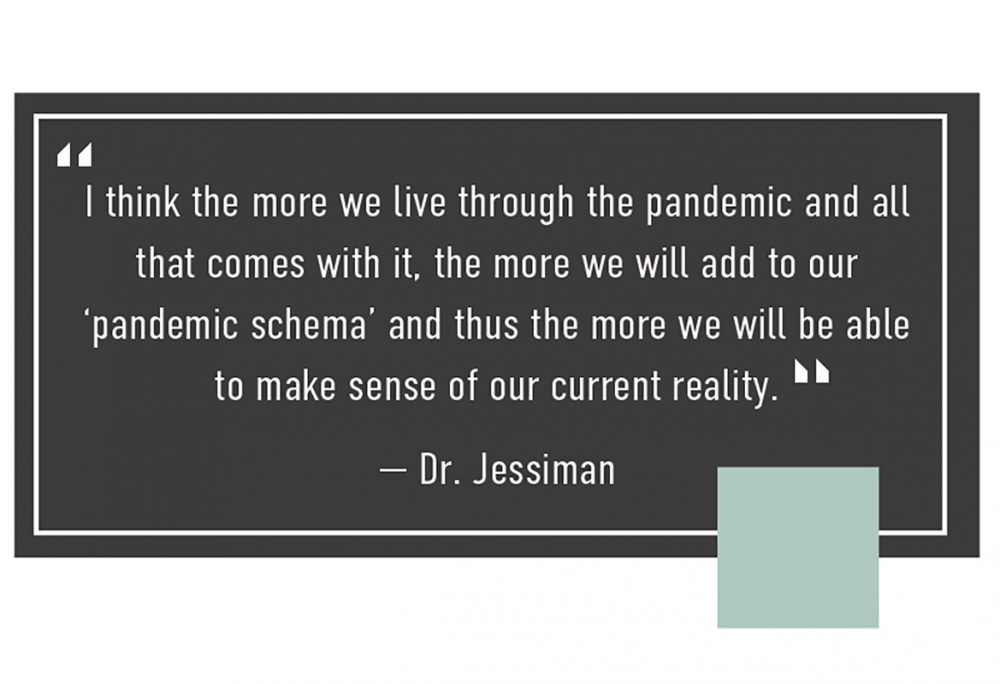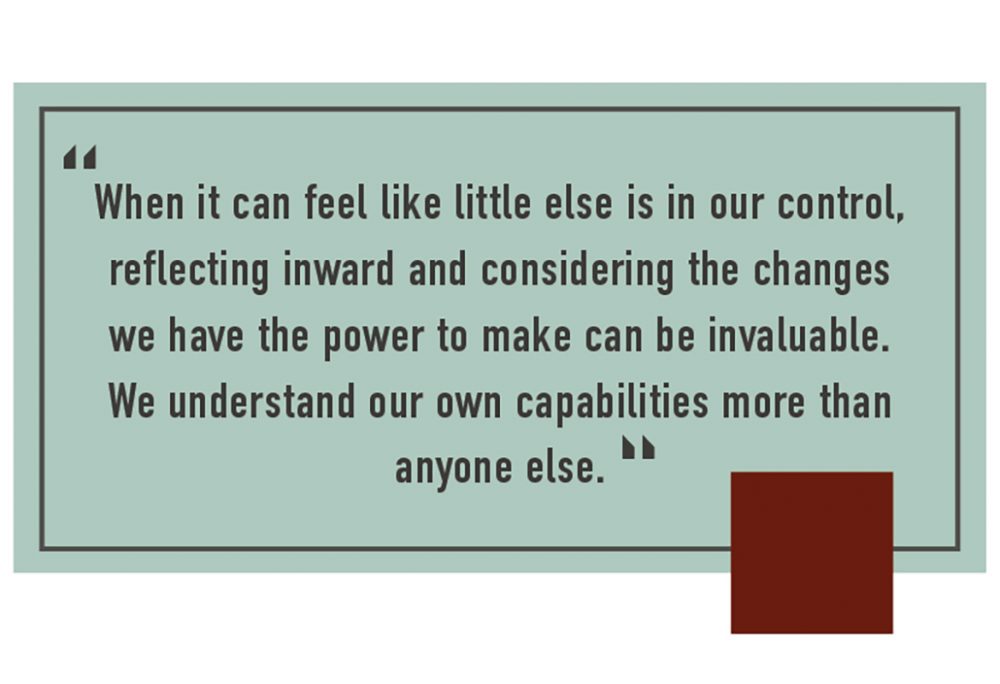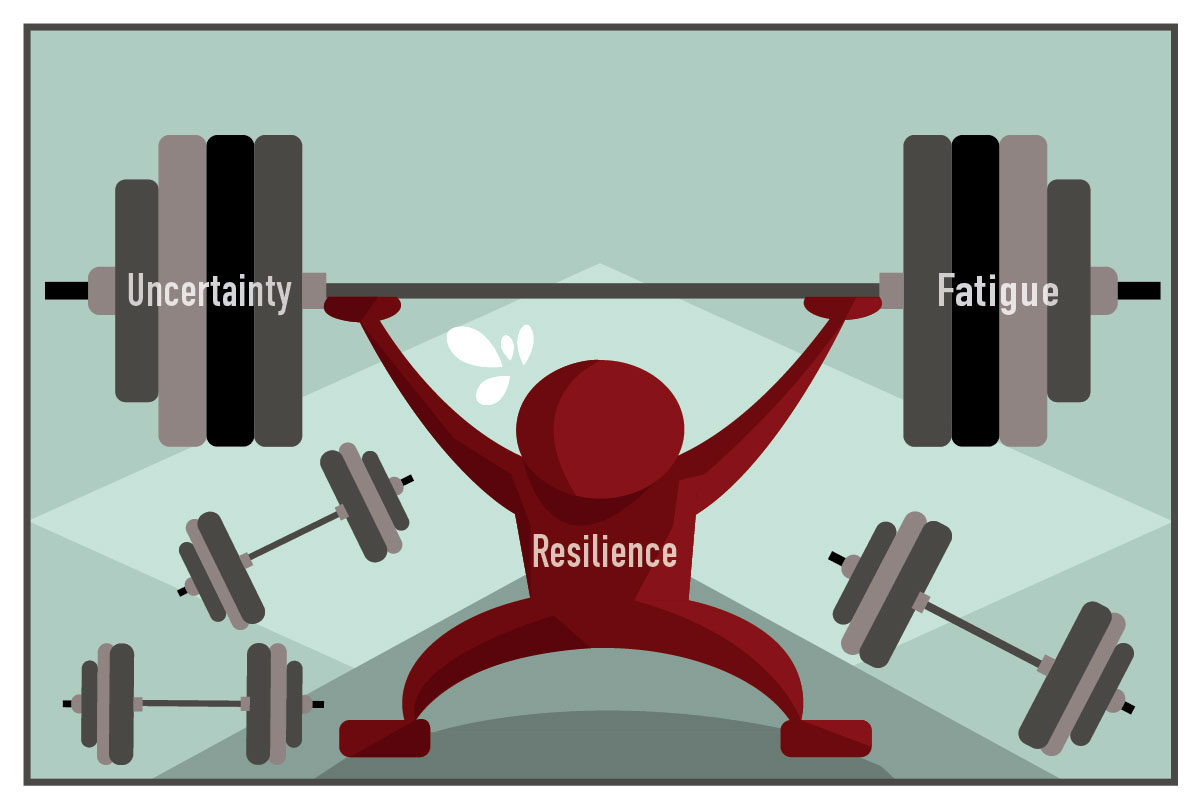Strategies for coping in a time of uncertainty, fatigue, and disconnection
2020 is drawing to a close and another year awaits. This new year will build off the old as COVID-19 continues to lurk in the near future. Though we cannot control the reality of the pandemic, we can try to change how we approach it. Prioritizing mental health is something we all deserve, whether we’re inside avoiding a microscopic virus or not.
The consequences of COVID-19 spread far beyond viral contagion. The Centre for Addiction and Mental Health (CAMH) has conducted surveys about the mental health effects on Canadians since the beginning of the pandemic. According to the most recent survey from September, 21 per cent of participants reported feeling anxious, 20 per cent felt lonely, 21 per cent responded they felt depressed, and a quarter of participants engaged in binge drinking. Approximately 1 in 5 Canadians have sought mental health help associated with the psychological strain of COVID-19.
I spoke to professors at UFV about what makes the pandemic difficult from a psychological perspective, and strategies that can be used to manage uncertainty, fatigue, loss of motivation, and loneliness during this time.
Uncertainty
Dr. Lesley Jessiman is a psychology professor at UFV who focuses her research on aging. This includes cognitive and linguistic functioning, along with psychosocial issues. During COVID-19, she has been involved in a research study with Dr. Andrea Hughes, another UFV professor, regarding how individuals of various ages are handling social isolation and loneliness.
“No one likes uncertainty. Our brains are programmed to make sense of our worlds,” Dr. Jessiman said.
Though not a regular occurrence for most of us, pandemics are a part of life. They recur throughout human history as a natural biohazard. Deadly viruses and bacteria have shaped the world around us today. Here in British Columbia, entire communities of Indigenous populations disappeared upon colonial conquest, in part due to diseases brought to North America by colonizers. Epidemics like smallpox spread upward from Central and South America and engulfed Indigenous communities who had little resistance to European diseases. Our society today is quite literally built upon the deaths of thousands, who were often not able to be buried due to the sheer number of bodies that demanded care. And Indigenous people and communities continue to be disproportionately affected by COVID-19.
Although we are dealing with COVID-19 together, personal history and systemic discrimination will affect how we adapt. The pandemic can have a significantly greater impact on Indigenous communities, where many deal with intergenerational trauma and which receive less funding for resources. Sixty per cent of Indigenous respondents in a recent survey by Statistics Canada reported their mental health has declined since COVID-19 began.
Dr. Jessiman explained that schemas, which are mental structures that help us comprehend our worlds, develop based on prior experiences and help direct our actions. Past encounters with pandemics are important for how we respond to COVID-19. However, the circumstances around different pandemics are unique as well, and because COVID-19 is a first for everybody it can cause feelings of uncertainty.
Anxiety is often intertwined with unpredictability. “It’s natural to worry about things we have no or little control over,” Dr. Jessiman said. “I think the more we live through the pandemic and all that comes with it, the more we will add to our ‘pandemic schema’ and thus the more we will be able to make sense of our current reality.”

Fatigue from prolonged restrictions
COVID-19 has dragged on longer than many expected it to. Restrictions have been in place for months and continuously paying attention to precautions can become draining. It can be difficult to find the motivation to keep up with responsibilities and deadlines due to the repetitive routine enforced by a pandemic.
Dr. Zoë Francis joined UFV this past summer as a professor and is primarily a social psychologist. Her interests include mental fatigue and self-control.
“[The pandemic] is kind of tricky because we want to have a variety of activities. Humans aren’t meant to do one thing for our full week, week after week after week,” Dr. Francis said. Without any outlets or variety, it is understandable to begin feeling tired, and it may begin to feel difficult to complete tasks.
According to Dr. Francis, your mindset is vital for getting things done. The way we perceive our situation determines how we will act.
“The capacity for humans to keep engaging in difficult work is much greater than what most people give themselves credit for. If you truly wanted to, and felt like you needed to, you could write all of those papers in a row. Don’t do it. I don’t recommend this, but basically if you’re in situations where you’re like ‘I can’t,’ actually I bet you can. Self-perceptions play a big role, and it’s better to believe in yourself and know that you can do things.”
Despite our ability to power through, Dr. Francis also underlined the importance of having clear breaks to prevent fatigue. “Basically, decide when your off-time is and try to do the things that aren’t work. Try to give yourself the time to do things that you like that are re-energizing to you and offer that variety.” She particularly suggested going for walks outside, but anything to “disengage” could be beneficial when the combination of COVID-19 and workloads becomes too mentally demanding.

Strategies for getting things done
In a time of working or studying from home, self-control can be hard to come by.
Caitlin Shaw is a first-year student in the library and information technology program, and mentioned one of her struggles is the distractions that come with being online.
“Procrastination is much easier to do when you’re at home and you can just toggle on YouTube. You’re looking for music to listen to, you find some recommended video, and then you’re like, ‘Oh, I’ll watch that.’ Four hours later, and you think ‘Wait, this is due tomorrow?’”
Dr. Francis suggested two methods for when you get caught in a black hole of unproductivity: pre-commitment and intrinsic motivation.
“One option that can be very effective is pre-committing yourself. Make the decision ahead of time that you just are going to do something. Don’t leave it open to yourself,” Dr. Francis said. She suggests thinking of it as instructions rather than an option.
The most realistic way to carry this out is to start small. Begin with a “manageable goal,” Dr. Francis said. Rather than deciding to study 12 hours a day for the next two weeks, consider creating an actionable plan for only the next few days first. This could mean planning breaks around times you typically struggle to focus. For example, if you do not enjoy studying in the evenings on weekends, schedule more work blocks into the mornings.
Dr. Francis also mentioned that external tools can help with remaining on task, and that there are various apps available to lock yourself out of social media or restrict phone usage to a certain time limit. Though technology has brought a plethora of distractions, it came also with some solutions against them.
The second method is to search for what actually makes your task enjoyable. Dr. Francis suggests “If you have to do an assignment that is kind of difficult or annoying, to the best of your abilities, try and focus on the things that are interesting about it.”
Find a reason that the work is important, but make sure it is an intrinsic reason, or a reason that internally motivates you. Dr. Francis explains getting a job or degree is probably not going to sufficiently drive you to complete something and actually enjoy it in the process.
“When you are doing things that you find interesting, it doesn’t matter if they’re cognitively tricky or demanding. People play video games that are very complicated for hours and hours on end, but because they find them enjoyable along with being difficult,” Dr. Francis said.
If there is absolutely nothing interesting about the subject you are working on, you could try making it rewarding in another way. For example, Dr. Francis mentions that crossing out to-do lists can be satisfying enough to help individuals finish their work.
As cliché as it sounds, the only way to get work done is to believe you will do it. “You have to decide that’s who you are. You’re someone that is going to do your work,” Dr. Francis said. “You’re going to be someone who does the best that you can do given your circumstances and the semester that you’re in.”
Connecting while separated
One of the most pronounced disruptions due to COVID-19 has been of the social element of many people’s lives. Historically, pandemics have sometimes meant extreme isolation — completely barring oneself from the rest of society to prevent the spread. However, we have a distinct advantage compared to our ancestors: personal protective equipment and technology.
“There’s two flip sides to COVID-19,” Dr. Francis explained. “There’s so much less social contact, but also people are so fundamentally social. We’re still impacted by the people around us, even if it’s just the norms of seeing if people are wearing masks in the grocery store or seeing what people are saying on Twitter. There’s still tons of social information that is influencing our actions even during a time when people are feeling very isolated.”
Though the consolidation of being in a pandemic together can be reassuring, it is often not enough. Dr. Jessiman mentioned that “For most of us, perceived social and emotional loneliness comes from the inability to be socially and meaningfully connected. And with the pandemic, one of the things we know is that social connections have to be constrained.”
Dr. Francis has noticed a fluctuation in purposeful social interaction throughout the pandemic. “In March, some people were overcompensating and scheduling lots of online social calls,” she said. However, it has not been as consistent for everyone as the pandemic went on.
“Revisit on occasion and check in on yourself,” Dr. Francis said. “Try and make sure you’re taking care of your social needs as well, because that will help play into your overall well-being.”
When it comes to online learning, Dr. Jessiman recommends actively trying to engage whenever possible. “One of the things I would highly recommend is if a professor offers to go on Zoom and do a synchronous class, that students do it. All the students I have spoken to that do it say they feel more connected,” she said.
Though it can seem strange to go to class on a Zoom call (especially knowing you might be the only one to show up), it can significantly improve the semester. Ironically, due to potentially faster email replies and virtual meetings, online can feel just as connected as in-person classes, albeit in a different way.
Engaging with peers can be helpful as well. Even if it seems like there is no option to do this, Dr. Jessiman suggests reaching out and taking the first step. Email the professor or class, and ask about creating some kind of discussion and study group. Though the prospect may seem daunting at first, remember that your peers are in a similar position right now.
A different approach
The effects of COVID-19 are not black and white. “We know that people are suffering now, but we do know that some people are becoming more resilient as well,” Dr. Jessiman said. “I think these experiences will give people a new string to their bow.”
Dr. Jessiman mentioned that the pandemic has allowed us to see things from a different perspective. Reflecting on our lives before COVID-19 gives us an opportunity to appreciate the things we previously might have overlooked. Alongside this comes an opportunity for change. As we adjust and COVID-19 becomes more routine, Dr. Jessiman hopes we begin to rethink our “normal” behaviours and evaluate the necessity of them. For example, one general trend resulting from the pandemic is greater activity outdoors. This may help us recognize and appreciate the importance of nature, and re-consider things like our commuting habits which can have greater damage on the environment.
“Also maybe think to yourself, we can’t do anything about being online. This is the situation. And so, use that to your advantage,” Dr. Jessiman said. There is little else we can do but make the best of it, so it is worthwhile to consider how we can benefit from the pandemic.
With almost a year of experience with COVID-19 backing us up, perhaps this is the time to make new resolutions. Not fleeting, unattainable wishes, but promises we owe ourselves to uphold. When it can feel like little else is in our control, reflecting inward and considering the changes we have the power to make can be invaluable. We understand our own capabilities more than anyone else.
Likewise, we need to recognize our limitations. COVID-19 is challenging. Intersecting factors like job insecurity, isolation, and fear of contracting the virus can be overwhelming on top of everything else we are dealing with in our lives. Recognizing when we need to stop and take a moment — or several — to ourselves is important. We don’t have to be productive all the time. We’re human, and far from perfect.
“If students are struggling, reach out. I do know that students often feel that they’re not in a position to reach out, or they don’t feel comfortable reaching out. But the majority of professors, if not all, will respond to students that say they’re struggling,” Dr. Jessiman said.
The pandemic is an opportunity to learn, but it’s not some kind of test. Take your time and find what works best for you. No one can grade you on life.
(Elyssa English / The Cascade)
[Correction: This article was originally incorrectly attributed to Chandy Dancey. Amanjot Dhaliwal is the author of this article.]


